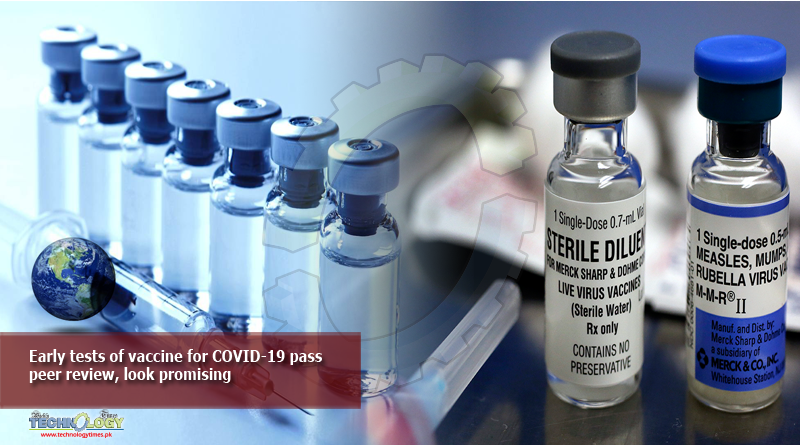While there were a number of side effects, everyone getting the vaccine for COVID-19 had a robust antibody response, including some antibodies that neutralized the virus.

We still don’t know how well a robust immune response protects people from SARS-cov-2 infection. But we’ve got a further indication that Vaccine for covid 19 can induce a strong immune response. Just prior to the holiday weekend, a Chinese team released the results of a safety trial done using a harmless virus that had been modified to carry one of the COVID-19 genes.
Familiar virus, new protein
The first indication of progress toward a vaccine for covid 19 that we’re aware of came in the form of a company press release. This new one comes in the form of a peer-reviewed article in the prestigious medical journal The Lancet. Most of its authors are academic researchers or public health authorities; only two have affiliations with a company.
The two reports also differ significantly in terms of their approach to generating an immune response. The earlier announcement, from a company called Moderna, involved injecting carefully packed rnas that encode the spike protein that normally resides on the surface of the virus. The rnas transit inside a person’s cells and induce them to produce the spike protein, thereby exposing the immune system to it.
The Chinese researchers used a very different approach to inducing immunity. In their case, they engineered the gene that encodes the spike protein into a harmless virus called Adenovirus 5. They then produced large quantities of the engineered virus and injected that into people. Even though adenoviruses are essentially unrelated to coronaviruses (they use DNA as their genetic material, rather than RNA), the cells that the engineered viruses infect will produce the COVID-19 spike protein, again exposing the immune system to it.
Adenovirus is not without its complications, however, the foremost being that a lot of us have been exposed to it previously. In this case, that may not be a bad thing. The primary side effects are largely those you’d expect from injections of a virus: inflammation at the site of injection, and the fever, fatigue, and muscle aches typical of a viral infection. Most of these occurred in just under half of the 108 participants, with over 80 percent experiencing at least one of them. But those who had a high level of antibodies to Adenovirus 5 tended to have fewer side effects.
None of the side effects were deemed serious, and all of the participants stayed with the study through its 28-day checkup. Potentially problematic, however, was the finding that having a strong immune memory of adenovirus 5 reduced the immune system’s response to the spike protein a bit.
The researchers tracked whether injections of the Vaccine for covid 19 induced the production of antibodies via a sensitive test. Antibodies against the coronavirus spike protein were apparent by 14 days after the vaccine’s injection. By 28 days, all but three of the 108 participants had large increases in the level of antibodies to the spike protein. Quantifying the changes, the researchers found that a high dose of vaccine injection produced a response that was over double that of the low-dose group, with the medium dose falling in between. There was also a T cell response to the spike protein, which is important for a strong overall immune response.
The researchers also looked for antibodies that neutralized SARS-cov-2, preventing it from infecting additional cells in culture. These were present in all the groups tested, with their frequency increasing with vaccine dose.
Overall, this is good news. But it’s also incomplete. Neutralizing a virus in culture is very different from neutralizing it in an actual organism. And there have been cases in the past where a vaccine has induced antibodies that make it easier for a virus to infect cells (by stabilizing the conformation in which the virus latches on to cells). So, we don’t know if the antibody production seen here will mean protection—that’s an issue for the next round of trials.
The authors also note that their participants were all younger than 60, so they didn’t include the population that’s at highest risk of infection.
Still, the work joins a number of similar studies that indicate it’s not difficult to produce an antibody response to SARS-cov-2, and that response will typically include antibodies that neutralize the virus in tests. What we’re currently lacking are two pieces of key information. One is whether neutralizing antibodies effectively blocks the spread of the virus in people. We should get some information on that as we start to wrap up trials of the use of blood plasma from previously infected individuals.
The other key question is how long any immunity lasts. There have been a couple of reports of possible re-infections, but they remain rare and the details of what’s happening are lacking. This may be a question that we’ll just need time to answer.
This news was originally posted on arstechnica.com
